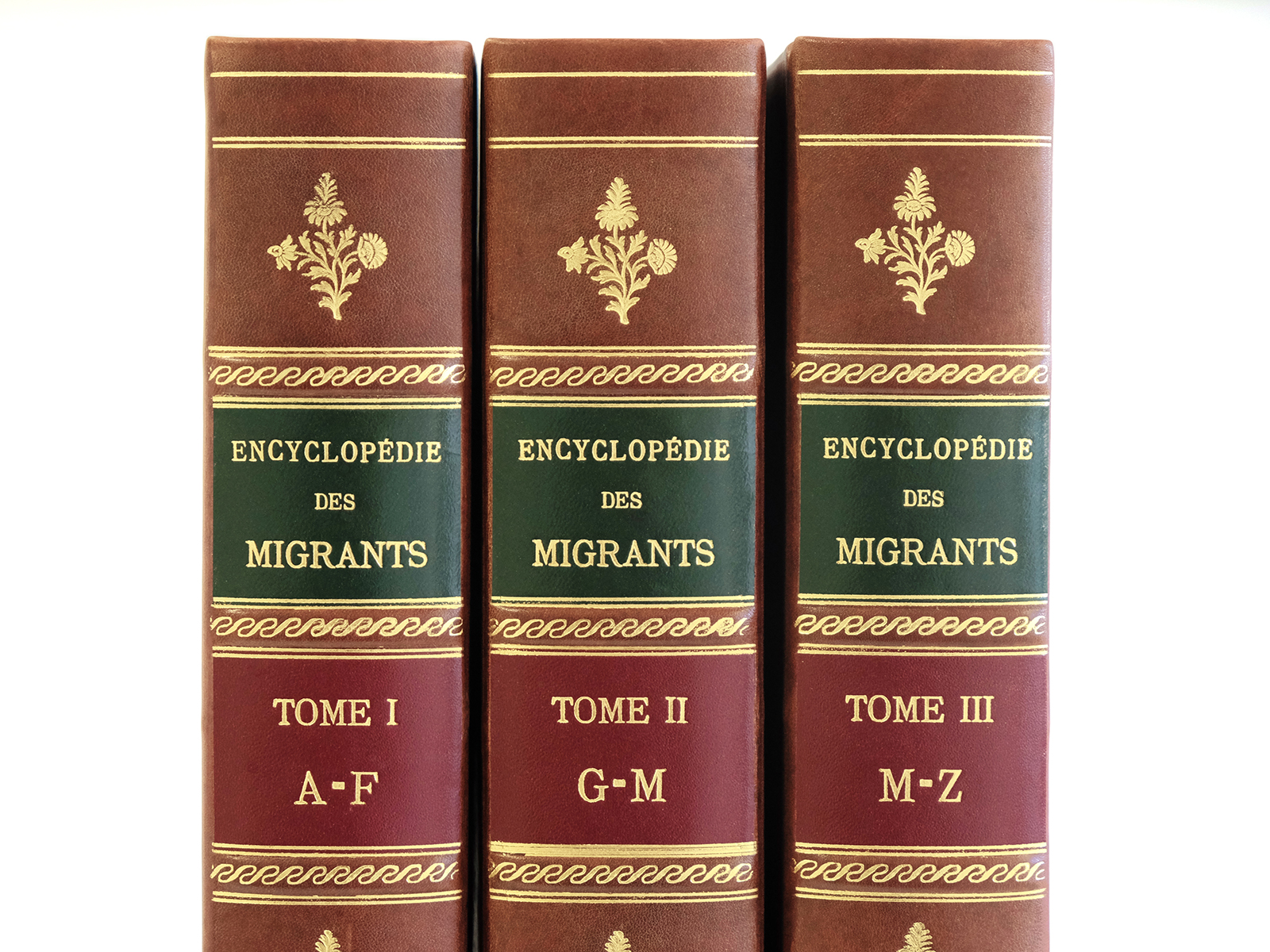The Encyclopedia of migrants is an artistic project containing 400 intimate testimonies from migrants. It is the fruit of the work undertaken by Paloma Fernández Sobrino, stage director and auteur of cross-disciplinary projects, to collect stories in the Blosne district in Rennes, which began back in 2007. In 2014, the artist made a proposition to L’âge de la tortue to continue with the existing scheme but on a larger scale in order to produce this iconic object, the Encyclopedia.
What sets The Encyclopedia of migrants apart is the sensitive, intimate way in which it tackles the question of immigration through the theme of distance. Each individual was asked to write a letter and address it to someone having remained in their home country, most often in their native language. The letters would answer the following questions: What effect does separation have on an individual? How are your bearings affected by the process of abandoning your home country?
The team made the decision to roll-out the project in one particular region: Europe’s Atlantic coast. In 2015, eight partner towns, all located between the northwesternmost point of Brittany and Gibraltar, came together to begin working on this ground-breaking Encyclopedia – Brest, Rennes, Nantes, Gijón, Porto, Lisbon, Cadiz and Gibraltar – as part of a European cooperation project, with a physical copy of the Encyclopedia housed in each town. Within the framework of the production process, each partner was responsible at a local level for presenting this Encyclopedia to the general public, as well as raising awareness of it by developing a long-lasting dynamic: organising exhibitions, readings, debates, connected projects and any other initiatives they may have wished either to implement themselves or to support.
Similar to Diderot and Alembert’s famous ‘Encyclopédie’, this Encyclopedia was the result of a cooperative effort, made possible through the formation of a network of stakeholders from a range of different fields (artists, community activists, citizens, public decision-makers, etc.) – including researchers in the field of human and social sciences, who were responsible for sixteen original texts contained within the Encyclopedia – and European organisations (associations, local authorities and institutions based in France, Spain, Portugal and Gibraltar). From the outset, this network encouraged contributions from all participants, with particular focus given to those most affected: migrants themselves.
The Encyclopedia of migrants is the result of an artistic endeavour and is available across a range of media, chief among these being its paper and digital formats. A website, a documentary film, a set of benchmarks and a user manual – these resources are all available in the four languages of the countries of the partner towns – French, Spanish, Portuguese and English – and can be found on the project website.
-> The Encyclopedia of migrants


